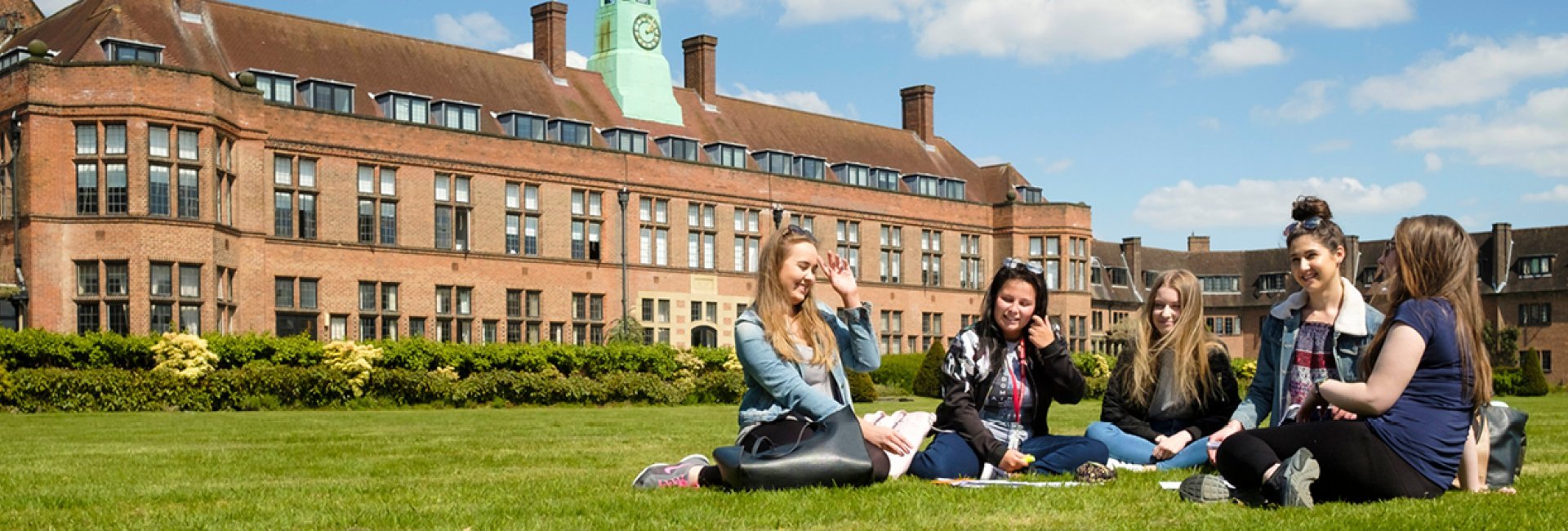Open Day- Saturday 28th June 2025
28 Jun 2025, 09:00
Liverpool, Merseyside


This is a four year degree taught at our Hope Park campus. The Foundation Year aims to develop your skills so that after a year, you will be equipped with the necessary skills needed for studying the full BA Hons degree programme.
Early Childhood
The early experience of children in today’s society is crucial to their future life experience. Early Childhood is receiving significant attention due to its importance for securing lifelong learning and development. The Early Childhood degree at Liverpool Hope allows you to study early holistic development from a local, national and international perspective. The widening gap nationally and internationally between advantaged and disadvantaged children clearly emphasises the implications of supporting children and their families in their early years.
The degree is taught by academics from a wide variety of backgrounds, including Sociology, Education, Philosophy and Psychology. The teaching team are all actively involved in research and have published in their specialist fields. They are all members of the thriving Liverpool Hope Childhood Research Forum and contribute to a range of research conferences both nationally and internationally.
Social Care
There is a growing need for well-trained, multi-skilled graduates able to respond to the changing demands within the Social Care employment and research sectors. As such the Social Care team recognise the great benefit of collaborating with service users, health and social care employers and stakeholders in this sector.
Curriculum content will develop students’ knowledge and understanding of Social Care through an interdisciplinary and multidisciplinary approach. Students will be encouraged to develop a critical approach to a range of social care discourses.
The School has strong links with a range of individuals and organisations in the field who have expressed an ongoing commitment to working with us. The Social Care team build on these long-standing working relationships at all levels of the programme to embed a research informed, evidence-based practice approach to teaching and learning.
Liverpool Hope University offers an integrated curriculum. Please go to the course link provided for further information on the topics you will study as part of this degree.
Students are assessed via a number of methods. Please go to the course link provided for further information.

Learn what it's like to study at Liverpool Hope University. From key stats to campus highlights, open days, and more - find everything you need to know here.
The following entry points are available for this course:
Applicants must achieve a minimum of 72 UCAS points for entry on to this course. UCAS Tariff points can be made up from a range of qualifications.
There may be some flexibility for mature students offering non-tariff qualifications and students meeting particular widening participation criteria.
Please contact our Student Enrolment team directly for further information.
t: 0151 291 3899
e: admission@hope.ac.uk
| Test | Grade | Additional details |
|---|---|---|
| IELTS (Academic) | 6 | For International students, an overall score of 6.0 is required, with 6.0 in both reading and writing and no individual score lower than 5.5. |
This section shows the range of grades students were previously accepted with - learn more. It is designed to support your research but does not guarantee whether you will or won't get a place. Admissions teams consider various factors, including interviews, subject requirements, and entrance tests. Check all course entry requirements for eligibility.
We are unable to show previous accepted grades for this course. This could be because the course is new, it's a postgraduate course, there isn't enough historical data, or the provider has opted out of sharing their entry grades data for this course - learn more.
Subject Spotlights give you the chance to try a higher education course before you apply. Delivered by the lecturers themselves you will gain insight into what it's like to study the course and give your personal statement a boost.

Operated by the Office for Students
Employment after 15 months (Most common jobs)
Go onto work and study
The number of student respondents and response rates can be important in interpreting the data – it is important to note your experience may be different from theirs. This data will be based on the subject area rather than the specific course. Read more about this data on the Discover Uni website.
| Location | Fee | Year |
|---|---|---|
| EU | £9250 | Year 1 |
| England | £9250 | Year 1 |
| Northern Ireland | £9250 | Year 1 |
| Scotland | £9250 | Year 1 |
| Wales | £9250 | Year 1 |
| Channel Islands | £9250 | Year 1 |
| International | £12500 | Year 1 |
Tuition fee status depends on a number of criteria and varies according to where in the UK you will study. For further guidance on the criteria for home or overseas tuition fees, please refer to the UKCISA website.
Please note, some of our courses may have additional costs. Please visit the course webpage for further information.
Hope Park
Liverpool
L16 9JD
Visit our website Visit our course page
Email:enquiry@hope.ac.uk
Phone:0151 291 3111
Email:ask-education@hope.ac.uk
Phone:0151 291 3410
Email:socialscience@hope.ac.uk
Phone:0151 291 3383